Ground Reports
Isha Foundation Faces A Challenging Environment. What It Does In Spite Of It Is Remarkable.
S Rajesh
Dec 15, 2024, 02:53 PM | Updated 03:47 PM IST
Save & read from anywhere!
Bookmark stories for easy access on any device or the Swarajya app.
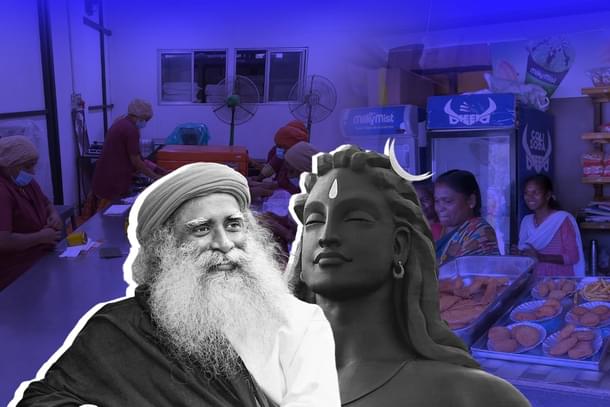
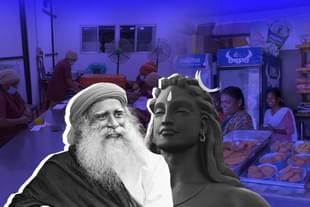
Nestled at the foothills of the Velliangiri Mountains, in the lush greenery of western Coimbatore, lies the Isha Foundation's ashram, founded by Jaggi Vasudev, popularly known as Sadhguru.
The foundation is well known for taking yoga to the urban, English-speaking Indian, who has usually not been too attached to Hindu culture. Sadhguru’s witty replies on topics like life, society, politics and philosophy often go viral on social media.
But even as he remains popular, the foundation has often been in the news for some not-so-positive reasons. It has been accused of not getting necessary approvals for its buildings, grabbing land belonging to tribals, and violating environmental laws.
Though the foundation has rejected these, new allegations keep coming up, with the most recent being the case of a father complaining that his two daughters, who are now Sanyasis, were being brainwashed into staying in the Ashram.
In that case, an order by the Madras High Court asking for the submission of a list of criminal cases against the foundation resulted in a huge number of policemen reaching the place to conduct an enquiry.
This was seen by many as excessive on the part of the state government and supporters of the foundation contend that the allegations are motivated, i.e. because certain political parties do not like their work and that their presence was preventing conversion activities by missionaries.
The organisation thus, does not have it easy. It operates in a tough political climate and faces intense scrutiny every few months over one issue or another. Compounding this challenge is the fact that its staunch opponents—politicians of the Dravidian ideology, evangelists, and activists—hold significant influence due to the dynamics of the state’s politics.
Yet, in what can be best described as a remarkable example of resilience, the foundation and its people have consistently achieved more than they set out to do.
In this report, Swarajya strives to bring to you, the reader, how all of this is unfolding on the ground—who the people behind it are, what the foundation has done for the communities around that remote corner of Coimbatore, and, most importantly, what the beneficiaries think of the impact Isha has had on their lives.
Empowering Adivasi Women
The Adiyogi statue is arguably the most famous spot in the ashram. There is not a single evening when it is not crowded and on occasions like Mahashivaratri, the number of visitors runs into lakhs. This also means a huge demand for food and snacks, making the location a perfect place for business.
This is where Isha identified an opportunity—not only to serve customers but also to economically empower impoverished Adivasi women living just a few kilometres from the ashram.
Swami Chidakasha, who has been involved with this initiative since its inception, recalls the humble beginnings of the self-help groups:
“This initiative began in 2018, about a year after the Adiyogi statue was inaugurated. We started with one group. It was challenging, as many of them couldn’t even afford the Rs 200 initial investment,” he explains.
“They were quite poor those days as their earnings from working in agricultural fields were meagre.”
Despite these challenges, the initiative has grown. Today, there are eight self-help groups, all thriving through the business of food and snacks at the ashram. Vijaya, a leader of one of these groups, shares, “We used to earn Rs 250-350 a day as agricultural labourers. Now, we pay Rs 70 per hour to women working with us, with monthly earnings exceeding Rs 15,000.”
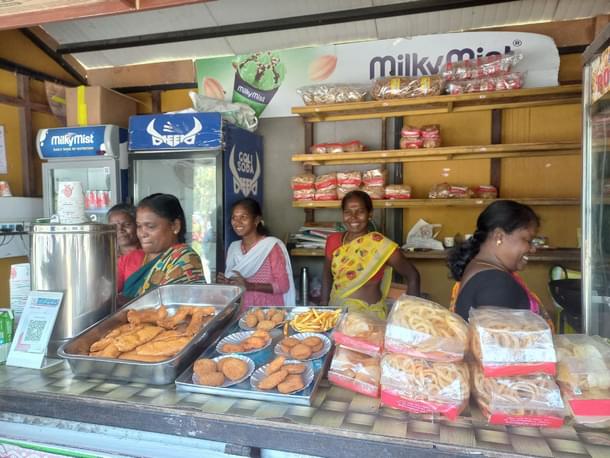
Continuing the story, Swami Chidakasha said, “Once they pooled in the money, we allotted them a shop. It is on a charitable basis—we don’t charge rent or electricity. Apart from the shop, we also gave them a 3-wheel electric vehicle that they could use to transport passengers within the ashram. The income from it would be given to the group.”
“The initial one or two months were tough because they were still learning the ropes of a food business. But by the third month, they had done enough sales for each member to take a small share of the profits.”
The mention of profit-sharing instantly lit up the faces of the women. Kavita, the group’s secretary, shared, “We were overjoyed. With our first share, we all bought Jiophones.”
“The Jiophones were just the beginning. Wait till you know more about all that they have accomplished within a short period of six years,” Swami Chidakasha said with a chuckle.
"The growth from there on was fast. Six months later, the profit share for each group member came to Rs 15000. This success inspired trust in the model, sparking interest in setting up more such shops. The confidence it instilled in the women was remarkable."
Illustrating his statement with an example, Swami Chidakasha said, "A year or two later, the group needed to replace their electric vehicle (EV). They faced a choice: purchase a three-wheel EV within their budget or opt for a larger four-wheel EV, which required taking a loan due to insufficient funds."
"When I asked them what they wanted to do, they unanimously opted for the latter."
"They said, “We will buy the bigger one by availing credit. We are sure that we will be able to repay the amount.”
“There has been no looking back since then. They have gone from being dependent on aid to donating to our programmes like Cauvery Calling. Just last year, all these shops came together to organise a feast. These groups also file income tax returns now.”
Curious about how their newfound prosperity had impacted their lives, I asked some of the women how they spent their earnings.
“We’ve gone from surviving to thriving,” said Devi, a group member. “Our earnings have allowed us to buy two-wheelers, large-screen televisions, smartphones, and even gold. But most importantly, we can afford quality education for our children.”
As we bid adieu to them, this writer couldn’t help but feel that this was one of the best examples of social and economic justice.
Upliftment Through Education
Isha Foundation’s efforts in education have been equally impactful. Isha Vidhya, a network of rural schools, provides English-medium education to children from economically weaker sections. The vision behind Isha Vidhya is to ensure that younger generations do not have to face the same hardships as their elders.
“Our students are often the first in their families to study in English,” said Principal Savithri Anand, adding, “We focus on spoken English, computers, and holistic development through yoga and nutritious meals.”
Students with whom this writer interacted mentioned custom workbooks, attention to weaker students, and peer learning as some of the reasons they believed their school stood out.

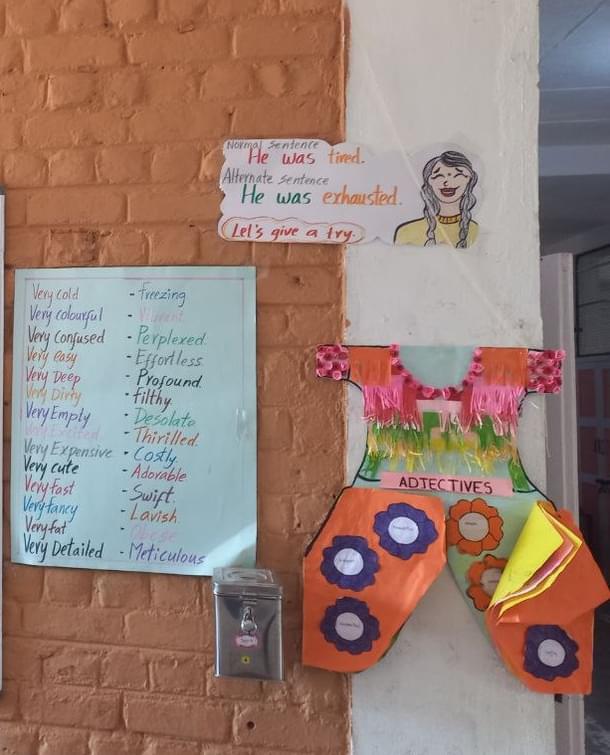
Samskriti—The Gurukulam With A Modern Twist
The foundation also runs Samskriti, a gurukulam that blends traditional and modern learning. Students are trained in yoga, classical arts like Bharatanatyam, martial arts like Kalaripayattu, and basic academics.
“Our aim is to create culturally rooted individuals who can excel in any field,” explains Swami Suyagna, who works with the ashram's media wing. “After a certain age, they can sit for the open schooling exam and be eligible for the same opportunities as regular school students.”
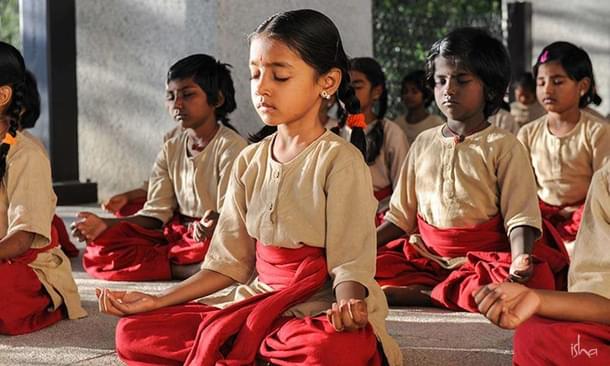
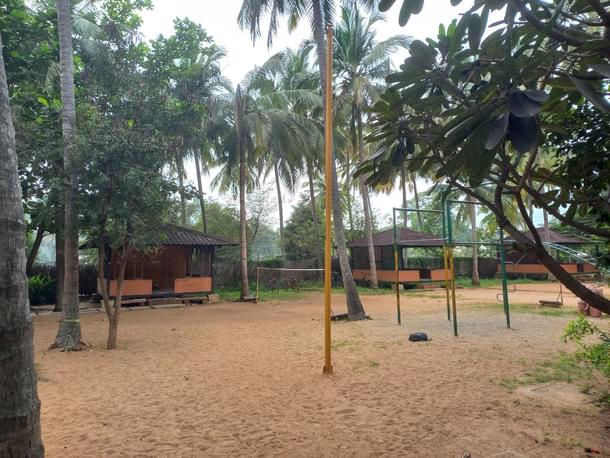
Save Soil—Training Thousands In Natural Farming
One of the foundation’s flagship programmes, 'Save Soil,' addresses the global crisis of soil degradation by promoting natural farming practices. Over 25,000 farmers have been trained through programs at Isha’s model farm, where concepts like zero-tillage and preparation of Jeevamrita are demonstrated.
The initiative has seen the participation of renowned practitioners of natural farming like Subash Palekar and Nammalvar.
My visit to the farm began in an area set up with the objective of creating a ‘food forest.’
Explaining the concept, Suraj Kumar, a volunteer who works on the farm said, “We want to show farmers how to generate a high yield from a small area while ensuring income throughout the year.
“The crops, including lady’s finger, turmeric, spinach, cherry tomatoes, and even fruit trees like mango, guava, and papaya, have been planted with adequate spacing. While the vegetables will yield in a few months, the trees will bear fruit in a few years.”
Adjacent to the food forest were a few beds demonstrating the concepts of multi-cropping and mixed-cropping.
“Everything used here is natural. The compost is from the food waste generated in the ashram. We also follow the concept of zero-tillage,” Kumar added.
Swami Jyotirmayi, a brahmachari, who has been associated with the ashram since the 90s and has worked on various initiatives through the years said, “The good thing about the initiative is the high relatively high success rate.
“About 15000 farmers have taken to natural farming. Initially, a lot of them hesitate. Everyone wants to be sure of the yield. We encourage them to start with one acre and gradually expand.”
Other areas of the farm focus on growing fruits like papaya and various rice varieties, and showcasing practices such as multi-cropping.
"We grow a lot of native varieties," added Thillai Govindarajan, a farmer, who works with Kumar and other volunteers. "Unlike the cultivation of hybrid varieties, where you have to purchase seeds, native ones can be grown again using the seeds from the previous crop. This leads to cost saving."
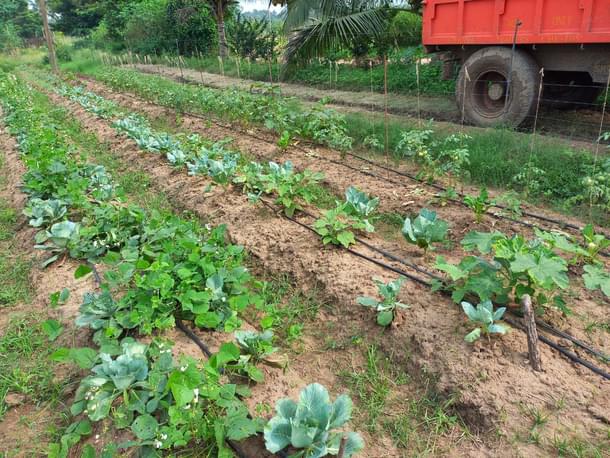
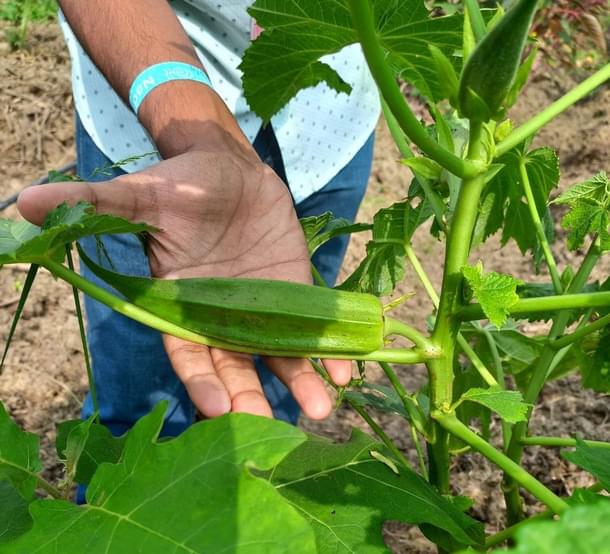
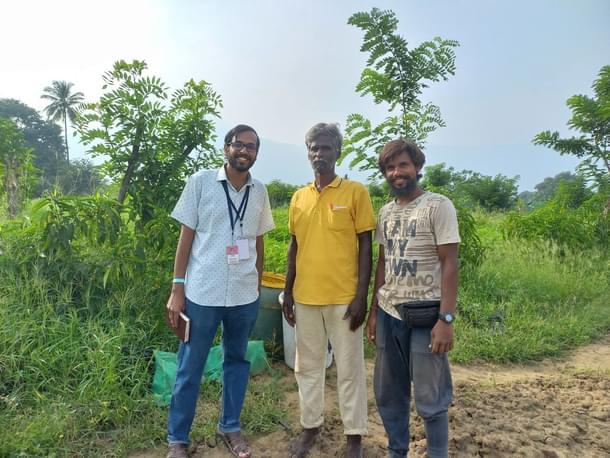
Award Winning Farmer Producer Organisations (FPOs)
The foundation’s outreach activities extend beyond teaching; it also facilitates farmers in pooling resources and securing better prices for their products. This initiative began over a decade ago with the establishment of Velliangiri Uzhavan, long before the term ‘Farmer Producer Organisation’ (FPO) gained widespread recognition.
Isha now supports 25 FPOs.
Giving an example of how coconut farmers in the region benefited from Velliangiri Uzhavan, Swami Jyotirmayi explained, “A few years ago, the price of coconut was Rs 40 per kilogram, but farmers only received Rs 34. For a field producing 5 tonnes of coconuts (which is quite common), this meant a loss of Rs 30,000. Today, through the FPO, farmers can negotiate better prices.”
“They have done quite well under the guidance of the foundation, with Velliangiri Uzhavan and Thenserimalai winning the best FPO awards from the state government and NABARD respectively,” he said.
Isha Life: Providing Livelihoods Through Small-Scale Manufacturing
At a small distance from the farm is a manufacturing unit run by the foundation which produces Ayurvedic products, health mixes, and eco-friendly items.
All of these are sold under the brand ‘Isha Life.’ The unit mostly employs women from nearby villages, providing them with a stable livelihood.
"This unit has been a godsend," said G Amaravathi and M Baby from Semmedu village. Both of them stitch bags and other cloth items.
“We didn’t even know how to operate sewing machines before joining,” they say, adding, “Now, we can support our families and educate our children.”
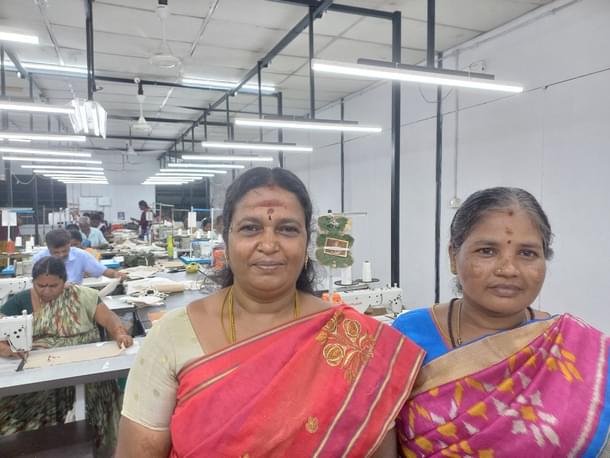

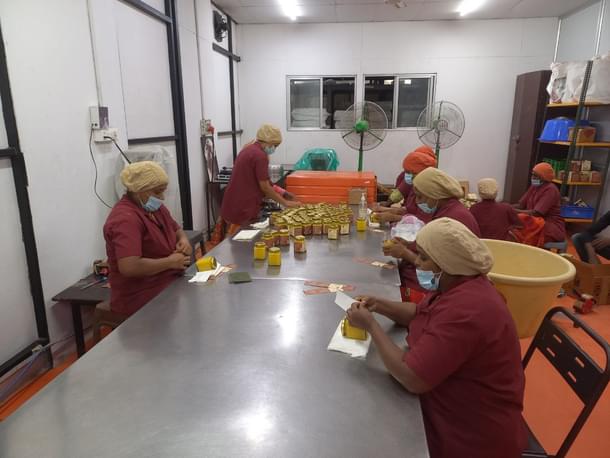
When asked what she likes about her job, Vijayamani, who sorts raw materials and removes impurities, said, "We get paid more than agricultural labour, and we don’t have to travel over an hour to the city. While there is regular bus connectivity now, it wasn't like this before."
While most of the workers are from nearby villages and are unskilled or semi-skilled, there are also a few locals, like Aadhirai and Alagumeena, who are highly qualified.
Both of them work in the quality control department, whose work is to ensure that the products meet the required standards. While Aadhirai has an MSc degree, Alagumeena has a master’s in Siddha medicine.
Concurring with Vijayamani, they said, "The best thing about working here is that we are close to our family. We do not have to worry about travel or returning alone at night."
“What sets this place apart is the sense of community and purpose,” says Alagumeena, adding, “I even turned down a government job to stay here.”
(This is the first of our two-part series about Isha Foundation. The next report would be about the allegations, who is behind it and what is Isha's response)
S Rajesh is Staff Writer at Swarajya. He tweets @rajesh_srn.





